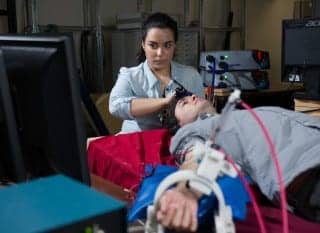Patients with certain variants of the PATG gene may be predisposed to experience a worse recovery from an ischemic stroke, according to results from an international multicenter study.
Seven out of 10 patients with these variants experienced severe sequelae 3 months after having a stroke and are in a situation of dependence, compared to less than half of patients who do not present these variants. according to the study, coordinated by researchers at the Hospital del Mar Medical Research Institute (IMIM) and doctors from the Hospital del Mar and published in the journal Circulation Research.
The study, led by Dr Jordi Jiménez Conde, attending physician at the Hospital del Mar’s Neurology Department used data from more than 2,000 patients and involved 12 centers from around the world, per a media release from Hospital del Mar Medical Research Institute.
In the study, researchers analyzed the degree of disability after 3 months of more than 2,000 patients with ischemic stroke by studying multiple clinical factors and genetic data. Specifically, more than 5 million genetic variants were studied for each individual.
“The PATJ gene shows several variants that significantly influence recovery in patients,” Conde says.
“In this study, we identified a set of genetic variants that are relatively common in the population, and which are associated with worse recovery from stroke after three months,” stresses Dr Marina Mola-Caminal, first author of the study and a researcher in the IMIM’s Neurovascular Research Group, in the release.
“In the future, these variants could be used as biomarkers for stroke sufferers, and, depending on the presence of risk alleles (alternative forms of a gene) in each individual, rehabilitation strategies could be personalized,” she adds.
At the same time “we are able to indicate a region of the genome that is heavily involved in neuroplasticity and neuroregeneration processes, and perhaps if we understand the pathways, we will be able develop new treatments that use this gene as a therapeutic target and help improve patient prognosis,” Conde concludes.
[Source(s): Hospital del Mar Medical Research Institute, EurekAlert]





